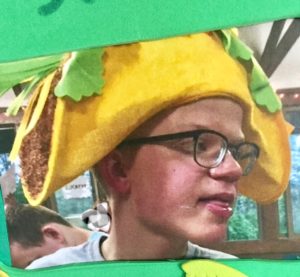What To Do After You Find Out Your Child Has Special Needs (Part 1)
In my first post, I wrote about the initial moment I knew my life had changed. The pediatrician told me Baby Jack had special needs. Perhaps this is where you are right now. If it is, I’m sending you a virtual hug. Try to take care of you and your family as best you can, and know that your “best” at this point might simply be that everyone is fed. That’s ok. Back in 2003, I considered it a victory to have my teeth brushed and Jack’s diaper changed. Allow yourself the space to feel your sadness and fear, if that’s what you’re feeling, and know you will adjust—it just takes time.
While you are working through your feelings, there are some actions I encourage you to take, and the sooner you do them, the better for you and your family in the long run. These actions I mention are specific to me as a parent living in southwestern Ohio in the United States, so if you live in another state or country, the actions may look different, but the general idea is the same: you need to make sure to care for your family’s emotional and financial wellbeing. I have a lot to say on the subject, so part 2 is soon to follow! Full disclaimer: I am not a financial planner, lawyer, or social worker (although it sometimes feels that way!). I am simply a mom who has done this for 15 years and I hope what I’ve learned through trial and error may make your experience smoother as a result. This post does not touch upon acquiring specific services for your child (Physical Therapy, Occupational Therapy, Speech Therapy, etc.), because it seems many people do this part automatically and get help from their pediatricians. This is other stuff that people tend to not know, forget about or put off. OK, disclaimers and caveats over!
- Run–don’t walk–over to your county’s developmental disability website!
I have read ad nauseam many recommendations for how to take care of yourself as a caregiver. Many articles suggest having a “date night” with your partner (if you have one), eating properly, getting enough exercise and sleeping at least 8 hours/night. They also suggest you achieve these goals by leaving your child with a close friend or family member so you can get away from the stresses of your daily life.
These suggestions are all good ones, and if you have people who can watch your child on a regular basis, I’m very happy for you (and a bit jealous—I’m not gonna lie!). However, what happens if your support system moves away from you or if someday they are simply unable to care for your child because of their own age or illness? Also, the little toddlers may grow up to become big teenagers who still need diaper changes—you need someone with physical stamina to provide that care. That is why I encourage you to have a “Plan B.” If you live in the United States, go online to your county’s developmental disability website and familiarize yourself with their services, as well as call and speak to someone directly. Many states have what is called a Waiver. Waivers provide support to eligible children and adults with developmental and intellectual disabilities. Often the waivers provide funds for in-home and out of home respite care. For example, Jack has a waiver through the state of Ohio that funds his overnight camp a few weeks per year. This camp is specifically designed to give developmentally and cognitively disabled teens and adults fun activities and community, while specially trained counselors and nurses provide the daily care and assistance. Jack LOVES camp. I mean, he starts waiving goodbye to us as soon as we pull into the camp. I love that we can give him that social experience and we can get a chance to regroup and also to spend one on one time with our other child. There is an extremely low camper to adult ratio which is great from a safety standpoint. You could pay out of pocket for this camp, but such quality care does not come cheap.
Another huge benefit to the waiver is its Medicaid component. We are covered through my husband’s medical insurance, but Jack has secondary medical insurance coverage through Medicaid. This secondary insurance covers a whole host of medical costs and medications that my husband’s insurance wouldn’t cover. For example, take diapers. When you have a teenage son who wears diapers, you go through a lot of them. Medicaid covers the cost of the diapers, which we order through Cincinnati Children’s Hospital. If we were to buy diapers ourselves, it would cost around $200/month.
I can’t say enough good things about the support we have received from Jack having a state waiver. Unfortunately, there is only so much money allotted to waivers from the state and county. You may go through the process of eligibility for your child, only to be placed on a long wait list, which may take years. Don’t wait until you are emotionally hanging on by your fingernails to start investigating respite opportunities. If you feel your child has cognitive and developmental challenges, call your county and start the process. The worst that could happen is you do all that work and you discover a few years later you don’t need the waiver because your child caught up to the typically developing population and doesn’t need the services. At best, you know you’ve done all in your control to lay the foundation for your family’s emotional (and financial) well-being!

Jack having a party at camp wearing a taco hat!

Too much big fun after camp!
Stay tuned for Part 2!
Do you have any questions or experiences you wish to share? Please comment below!

I’m the mom of 2 great young adults, as well as of a very spoiled plott hound named Bubba Sue. I grew up in New Jersey, but have lived in the Cincinnati, OH area for the past 18 years. My husband Mike and I have been married for long enough not to look like our wedding pictures, but even after all these years, he still makes me laugh. After 15 years of questions and no answers, Jack got a diagnosis of Smith-Kingsmore Syndrome. I wanted to write this blog to help special needs families know they are not alone.
